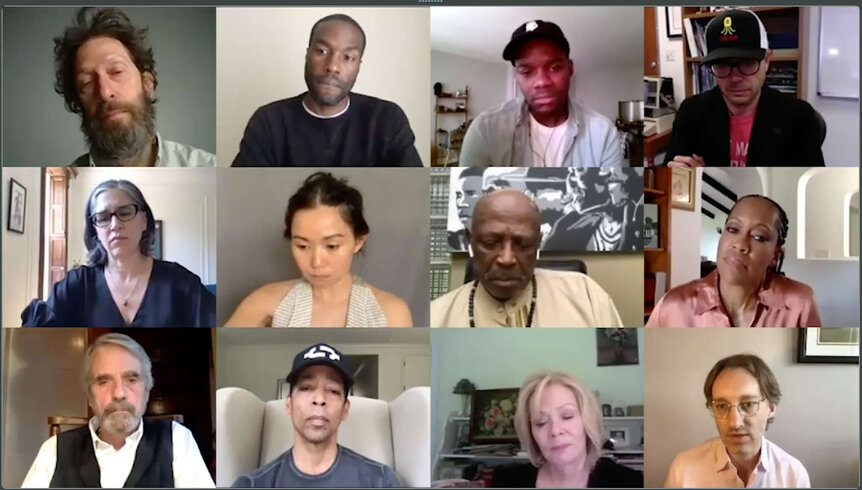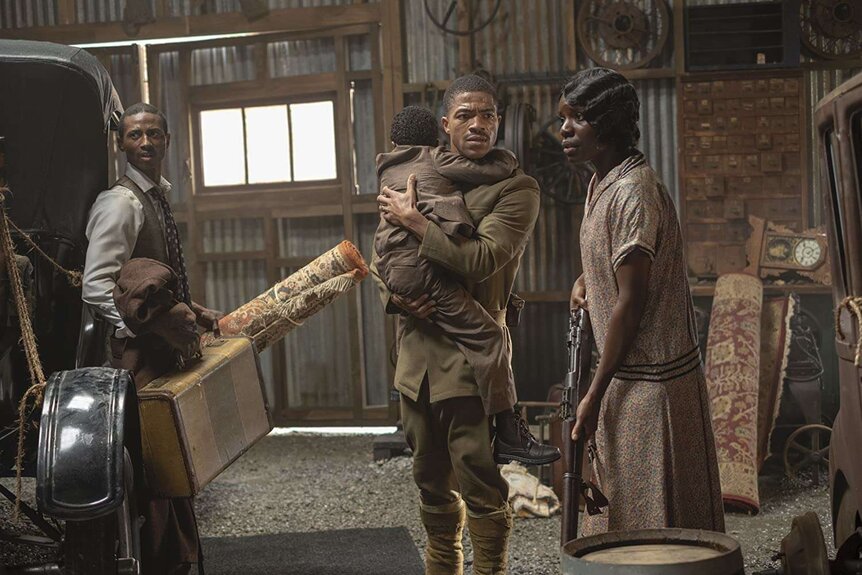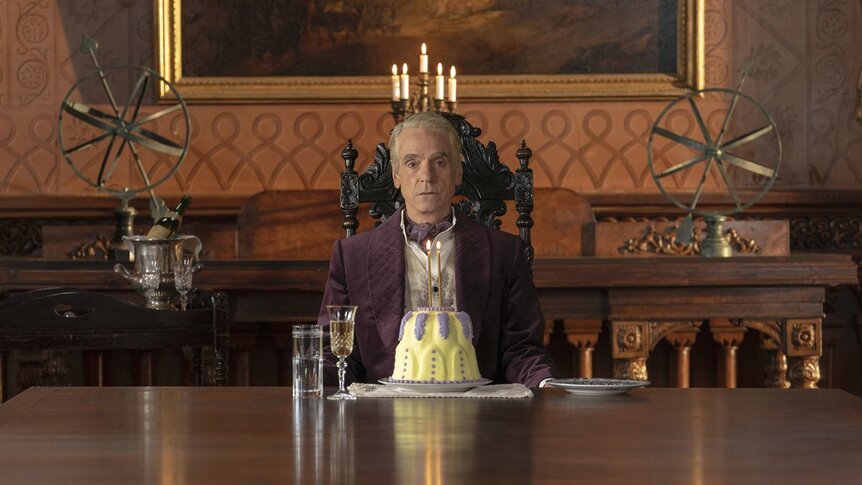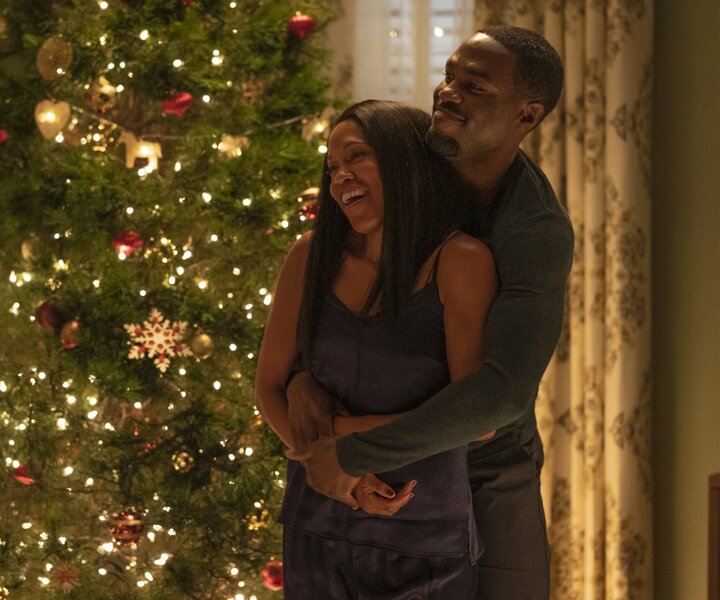Create a free profile to get unlimited access to exclusive videos, sweepstakes, and more!
Watchmen cast and crew on expressing art through social commentary of Tulsa Race Massacre
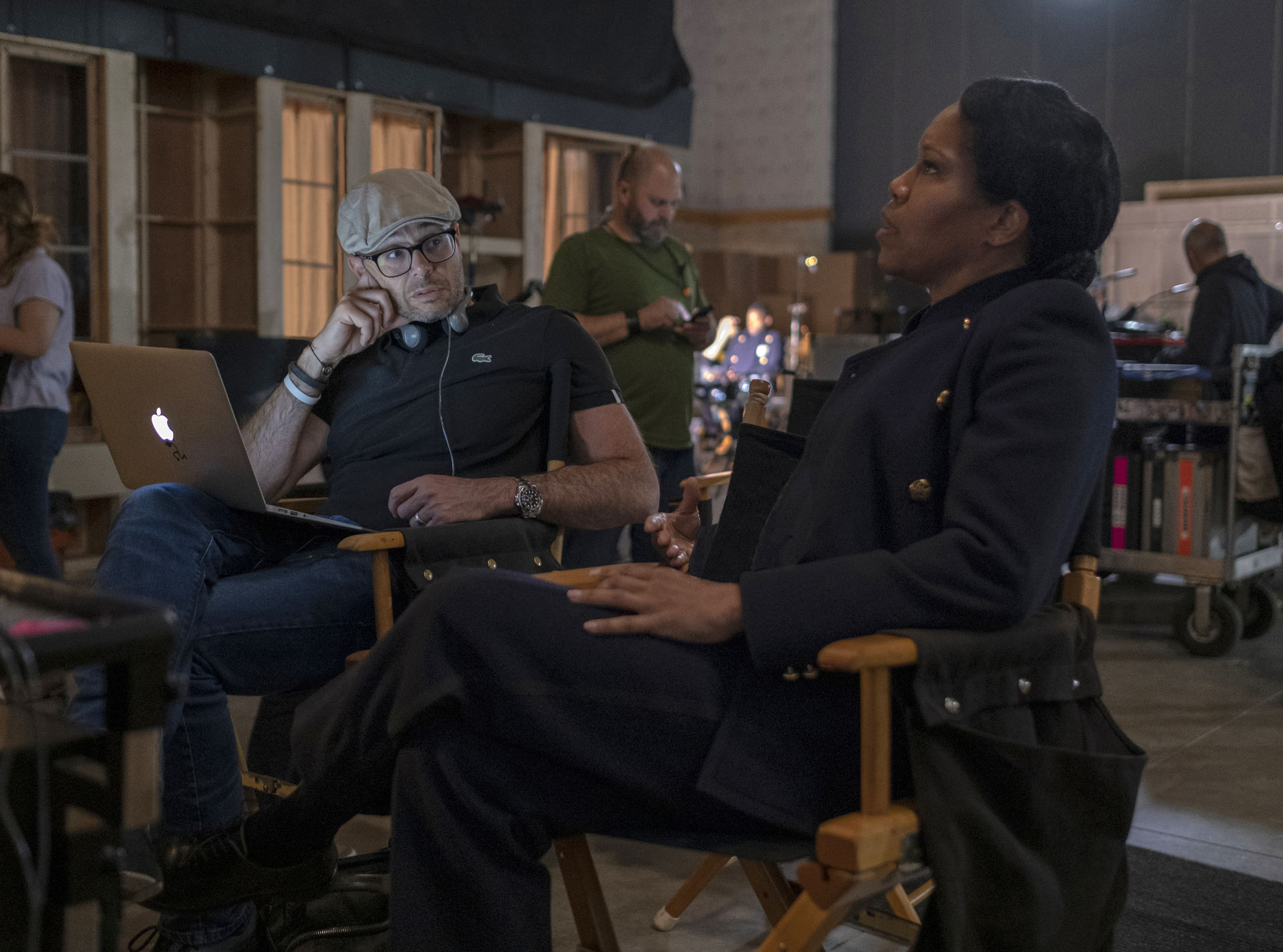
Last October, HBO's Watchmen opened with the harrowing depiction of the Tulsa Race Massacre of 1921, a real event most Americans had no idea happened. The series, which was created by Damon Lindelof as a sequel to the seminal comic book of the same name by Alan Moore and Dave Gibbons, has been thrust yet again into the zeitgeist because of that historical event, and the audience's reaction to it. Unknowingly at the time, Watchmen started a conversation about race that has since exploded around the globe in the last month after the killing of George Floyd in police custody.
Gathered virtually for an Emmy season Variety Streaming Room Q&A on Monday, Lindelof joined his series directors, Nicole Kassell and Stephen Williams, and his cast, including Regina King (Angela Abar), Yahya Abdul-Mateen II (Cal/Dr. Manhattan), Jeremy Irons (Adrian Veidt), Louis Gossett Jr. (Will Reeves), Jean Smart (Laurie Blake), Tim Blake Nelson (Wade Tillman), and Hong Chau (Lady Trieu), to discuss how the world has raced to catch up with, and carry forth, the themes introduced in the series, including ignored systemic racism, police brutality, and white supremacy.
"I thought it was brilliant that [the show's] entry point was with Tulsa massacre," King said of her impressions upon reading the pilot script. "I was unfortunately aware of it before, but knew so many, including Black people, that did not know. What I hoped would happen did, with people going online [after it aired] to see there was more to it. Anytime you can express your art in a space where social commentary is there, I'm for it. And for [Angela] in the pilot to be the window into all of this was, as a Black woman, I'd never seen anything like it. To carry that was an honor."
If there was one thing thing that became very clear in the entire 45-minute discussion, it was the trust forged among the cast and writers/producers in making a series that took everyone's contributions and points of view seriously. And also the loyalty of the team to Lindelof. When moderator Adam Vary asked who among the group would return for a second season of Watchmen without Lindelof, no hands were raised ... except for Lindelof's. He's already been vocal about being more than content in telling the story he wanted to tell in the nine hours of Season 1.
Lindelof did add that there was no shortage of other storytellers out there, including Black creatives, who also wanted to tell the Tulsa story in other narratives over the years, but it disappointingly took him and Watchmen to have it happen. "People who wanted to tell it were told it's not commercial and people don't want to see it," he said, while noting he was very proud that after the pilot debuted in October, it wasn't Watchmen that was trending on social media, but Black Wall Street. "Part of me that wishes that it didn't have to be Trojan Horsed [inside Watchmen]. But it's not the only story. Tulsa is just the beginning. It's a difficult education but you need to give it to yourself. Resources are at our fingertips now."
During the rest of the conversation, many other topics came up as well, including the origin of the black and white aesthetic of "This Extraordinary Being," as directed by Williams (who worked with Lindelof on Lost). Williams remembered that choice coming out of early talks with Lindelof in regard to taking the audience on a journey of subjective immersion. "We would stay inside [young Will's] POV as rigorously as possible with his POV shared by Angela courtesy of the nostalgia pills. The script had the long takes as a way of immersing you as deeply as possible, and the black and white came later."
Lindelof added that Williams referenced the style of Birdman in crafting the visual style of the episode, and said the black and white went back to Tulsa. "It was understood that Tulsa was the memory that kept intruding on all other memories. The idea there was a vividness of the Tulsa origin story breaking through into the black and white story. How do we do that? Stephen said, 'Those should be in color and everything else black and white.'"
Emmy- and Oscar-winning actor Louis Gossett Jr. also shared his appreciation for being in a piece that is still finding cultural resonance. He's done that with many of his previous roles, including the seminal miniseries Roots, but he says Watchmen has been special. "When I locked eyes with Regina, it was almost like she was my family and you dream, as an actor, that there's no acting involved."
On watching what's happening in the world now, the actor was genuinely awed and grateful at seeing the global reaction. "To be 84 and seeing this is wonderful. We've had to learn to survive. We've had to make adjustments which have encouraged a strength and pride. Even the wearing of the [superhero] masks is now happening today and it's symbolic. It's brave and it's out there so we can grow. It's poetically historical."
As for some of the other cast, Lindelof says he was particularly thrilled to get someone like Jeremy Irons on board, considering the bizarre things they asked him to do as Adrian Veidt. "We kept waiting for you to call [from Wales] and say, 'I'm launching people from a catapult?!' Or, 'I'm sitting in a courtroom for hours and all I do is fart? I won an Oscar!'"
Irons never did make that call, and admits he was fine shooting in the dark mostly away from the rest of the entire production until the finale. "I didn't know what was happening. It was a mystery. And I didn't know about the last episode until a few weeks before we shot it. It became clear when I watched the [finished] program. And it was glorious."
Another of the standout episodes for the cast was the origin story for Angela and Dr. Manhattan's secret relationship, "A God Walks Into Abar," which was directed by Kassell. She and Abdul-Mateen and King all agreed it was their hardest episode to execute because of the parameters of the script and how they shot it.
"It was tough," Abdul-Mateen explained. "For the scene in the bar, in between takes, I took off my mask and said to Regina, 'I'm so sorry.' I felt I couldn't give her everything she needed as an actor because the way this character processes and emotes. It's extremely difficult because he won't go there on an emotional level. So I just tried to be in every moment, otherwise, I would overwhelm myself. So it was all about being present in the moment, and second, finding something human in him. He returned to Earth, but to me, the idea of being a god wasn't enough. He needed a human connection, and touch and love so that was my way to find out how to make him approachable, vulnerable and all-knowing as he is. He has a need and opportunity to explode that into another big need — the love between him and Angela."
King concurred and said it was 25 pages of script in the same place with just her and Yahya. "Yayha is an amazing scene partner and our chemistry was perfect for these characters. We had done all these episodes before and remained in contact prior to shooting this scene and others, so he was giving me everything one could give. And there was no way to get through that [sequence] without Nicole. She laid out what it would look like and gave us as much of what it would feel like. When she told me, 'The camera is only going to be on you,' I said, 'No way! How's that going to work?' and it's easy to then get in your own head."
Kassell said that for her part, it was so challenging to have Angela go through such a subtle journey over those 25 pages of dialogue. "To take Regina's character from no to yes, it's so subtle and how do you make that cinematically dynamic? The progression of camera over three days of filming is almost mathematical. And Yahya and I really rehearsed of Dr. Manhattan versus Cal. And I remember on day 1, Regina was not in a good mood. By day 2, I realized she was in character; annoyed and wanting to be alone but this guy was barging into her space. By day 3, when she says 'Yes,' we were all saying goodbye to that space and were all pleased."
